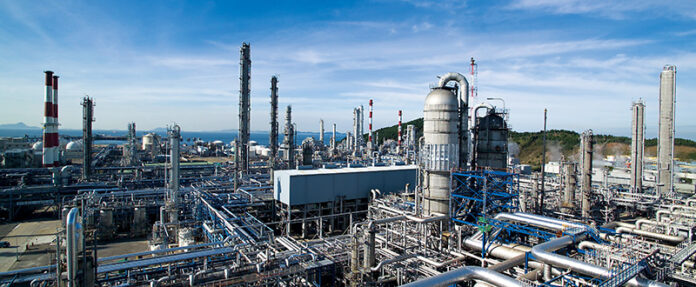- Hanwha TotalEnergies Petrochemical has acquired International Sustainability & Carbon Certification (ISCC) PLUS certifications for the sustainable traceability of its raw materials, including its synthetic resins, butadiene (BD) and styrene monomer (SM).
- The company plans to introduce bionaphtha and pyrolytic oil-based naphtha for sustainable low-carbon products.
- The certification marks a major step in strengthening Hanwha’s ESG competitiveness in the sustainable plastics market.
Hanwha TotalEnergies Petrochemical stated on May 23 that its synthetic resins and petrochemical feedstock products had received International Sustainability & Carbon Certification (ISCC) PLUS certifications, significantly enhancing its reputation in the environment, social, and governance (ESG).
ISCC PLUS is an international certification scheme that enables the traceability of raw materials across the value chain. It is aligned with the European Union Renewable Energy Directive (RED). ISCC PLUS certificates are currently held by around 130 global refineries, petrochemical and feedstock manufacturers.
Hanwha TotalEnergies Petrochemical received ISCC PLUS certifications for five of its synthetic resins, including ethylene vinyl acetate (EVA)¹, low-density polyethylene (LDPE)², linearlow-density polyethylene (LLDPE)³, high-density polyethylene (HDPE)⁴ and polypropylene (PP)⁵, as well as for two of its feedstock, butadiene (BD)⁶ and styrene monomer (SM)⁷.
The certifications can help clients who are extending their sustainable product options, such as apparel and home appliances that use EVA or other synthetic polymers, minimize their carbon impact. Furthermore, the company obtained ISCC PLUS certifications for its BD and SM feedstocks, which are used in the production of acrylonitrile butadiene styrene (ABS) and polystyrene (PS) thermoplastics, both of which are expected to increase in demand in tandem with the development of sustainable products.
Hanwha TotalEnergies Petrochemical intends to replace fossil fuel-based naphtha with bionaphtha and naphtha obtained from pyrolytic waste plastic oil in the production of ISCC PLUS certified products.
Soybean oil, palm oil, and leftover cooking oil are utilized to make bionaphtha. While the price of bionaphtha is at least three times that of present fossil-fuel-based naphtha, it is gaining traction as a possible next generation sustainable feedstock. Pyrolytic oil naphtha, which is utilized in petrochemical processes, is produced by filtering waste plastic-based pyrolysis oil to eliminate contaminants.
Hanwha TotalEnergies Petrochemical plans to introduce renewable naphtha for process testing and pilot production starting in June. The company will continue to explore additional applications for low-carbon plastic.
“The ISCC PLUS certification helps the company improve its sustainable solutions through the production of low-carbon plastic products made from recycled plastic waste feedstock,” said an official at Hanwha TotalEnergies Petrochemical. “As the demand for sustainable products increases in the plastics market, the move will help further secure the company’s ESG competitiveness.”


